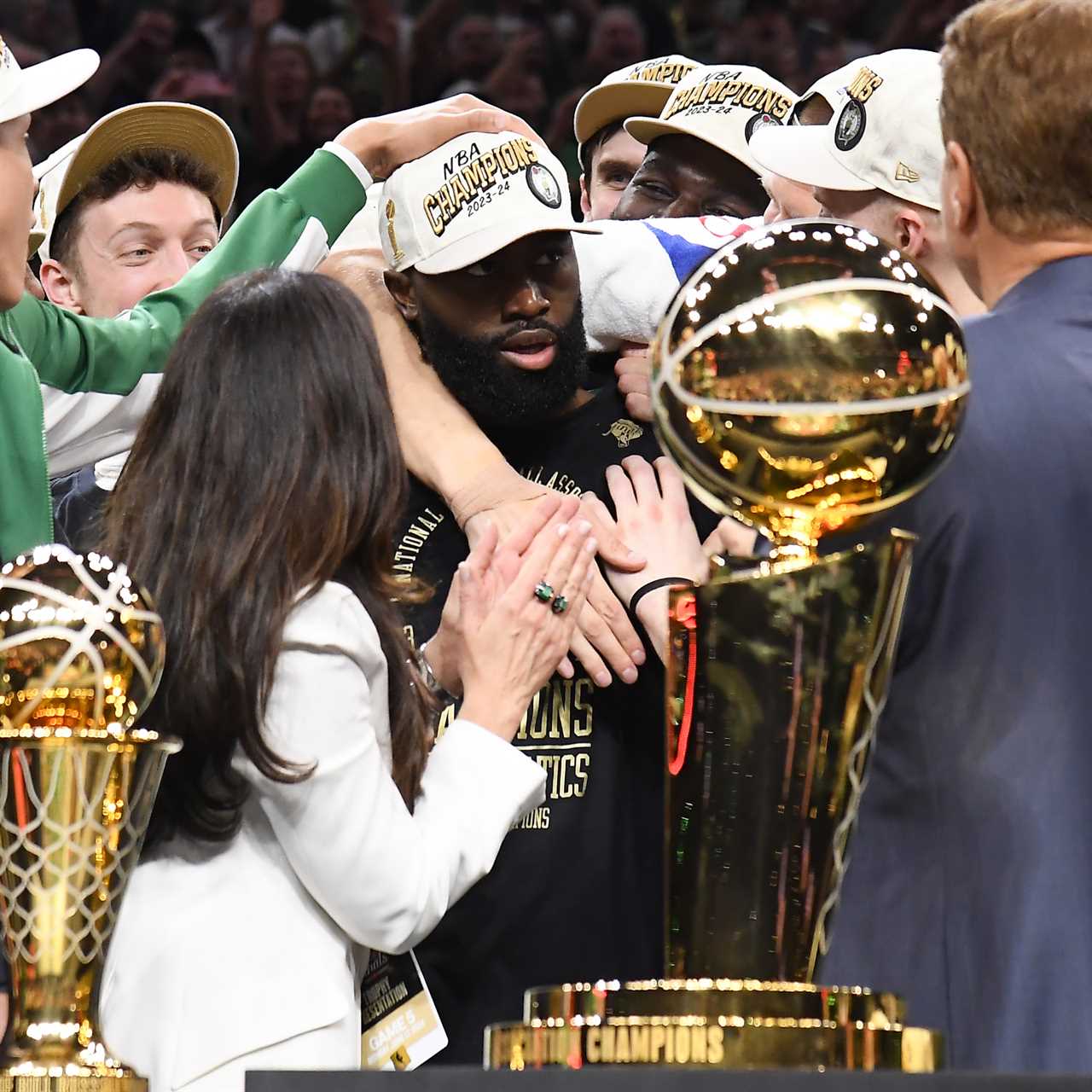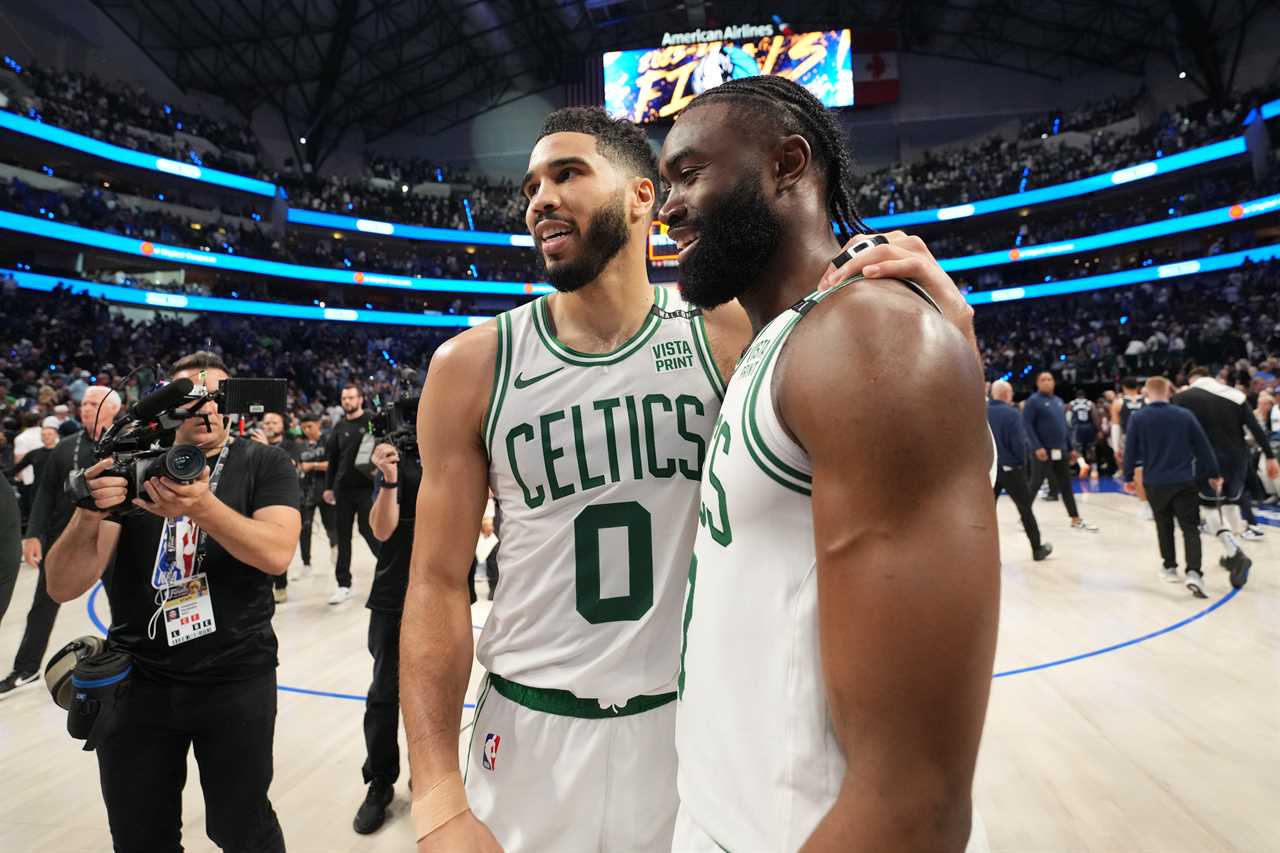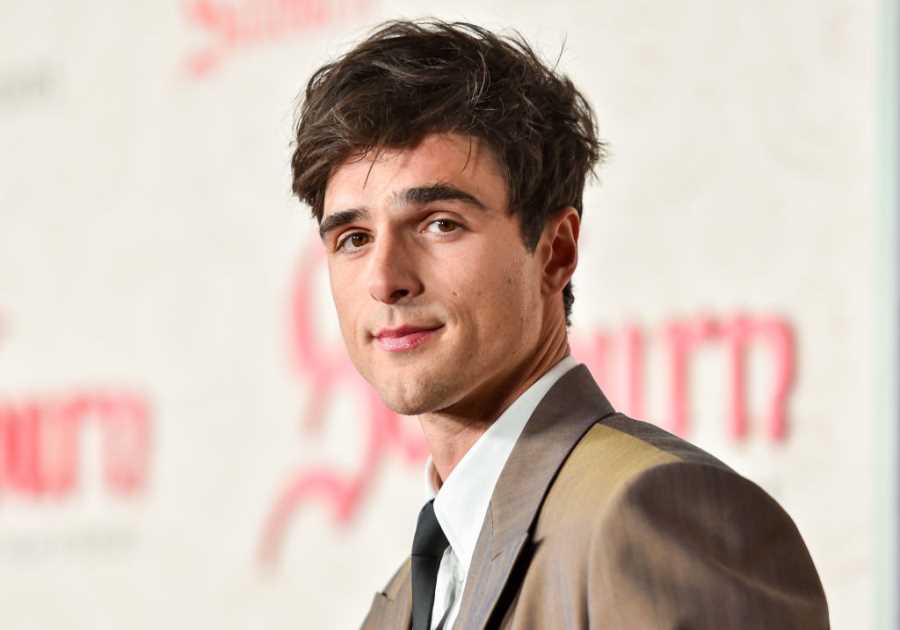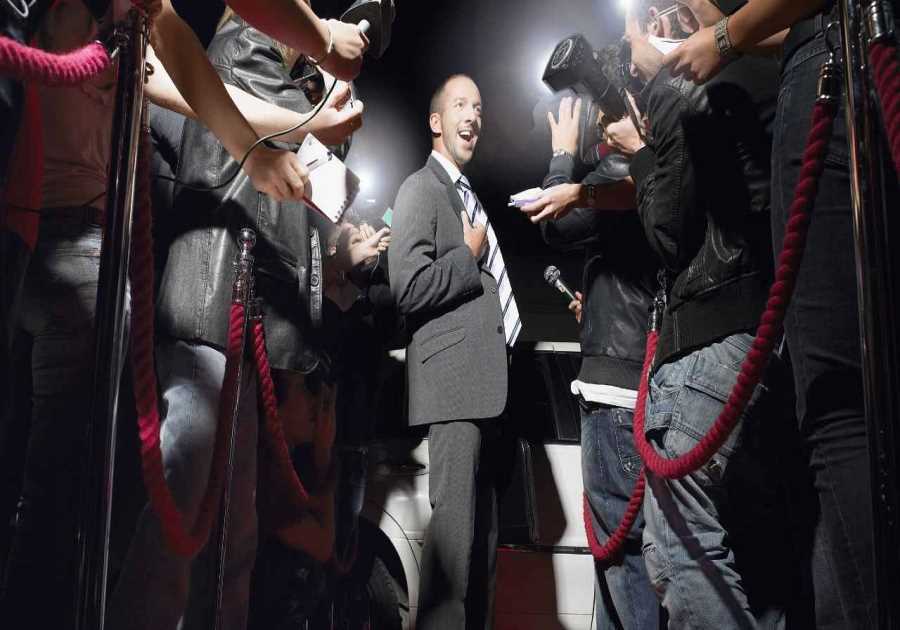BOSTON — By the beginning of the fourth quarter, the NBA Finals drama was over. The Boston Celtics led by 20 points and it was clear that they were going to win their record 18th title. The only remaining drama was who would be NBA Finals MVP: Jayson Tatum or Jaylen Brown.
Here we go again.
Fans and media have had this debate since the two became teammates seven years ago, and the debate will likely continue until one or the other leaves Boston. If it were about one game, Tatum would have gotten the nod. He was terrific Monday, scoring a game-high 31 points, grabbing 8 rebounds and handing out 11 assists. Brown scored 21 points to go with 8 rebounds and 6 assists.
But this was not about one game. Brown was dominant throughout the Finals, averaging 20.8 points, 5.4 rebounds, and 5 assists. On defense, Brown was the primary defender on Dallas scoring machine Luka Dončić. While Dončić scored, Brown’s tenacity took its toll.
When NBA commissioner Adam Silver announced that Brown was the 2024 Bill Russell Finals MVP, Brown and his mother, Mechalle Brown, were overcome with emotion. They embraced — eyes closed, tears flowing — so many memories of the hard road traveled to get here, flashing through their minds. Brown told reporters later that during his pregame nap, he dreamed that his grandmother had given him a hug. “I just knew everything was going to be all right,” he said.

Brian Babineau/NBAE via Getty Images
When he was named Eastern Conference Finals MVP in May, Brown said that he was surprised. After Monday’s game, I asked Brown if he was surprised about being named NBA Finals MVP. He spoke instead about his team.
“I can’t put into words the emotions,” he said. “I’m blessed. I’m grateful, this was a full team effort. My teammates were great, they allowed me to lead us on both ends of the ball, they came out and just performed on our home floor. It was amazing.”
He addressed winning the award over Tatum. “You know, it could have gone either way, it could have gone to Jayson,” he said. “I can’t talk enough about his selflessness. I can’t talk enough about his attitude. It’s just how he approaches, not just this series or the Finals, but just the playoffs in general and we did it together as a team. And that was the most important thing.”
Tatum was equally gracious: “Well-deserved, extremely happy for him,” he said. “This is a hell of an accomplishment. The main goal for us was to win a championship. We didn’t care who got the Finals MVP. I know that I need him and he needs me.”
On my ledger line of greatness, Brown is the MVP for reasons that have little to do with numbers and lots to do with energy, impact and much needed resolve — on and off the court. Whether it’s boxer Muhammad Ali, baseball player and activist Curt Flood, tennis legend Wilma Rudolph, Olympics protesters Tommie Smith and John Carlos or former quarterback Colin Kaepernick, my measure of greatness for African American athletes is never about the knockouts, the home runs, running fast or jumping high. It’s about how one uses fame and visibility to advance the cause of justice, respect and freedom outside of the arena.
Brown is MVP-worthy, but beyond that he is and will be a significant voice for change in a league whose players seem to have become complacent and content.
It wasn’t that long ago that Black athletes in particular had become such fearsome high-profile forces for change that the then-President of the United States implored team owners to reel them in. Conservative commentators, annoyed that athletes were using their visibility to raise social justice issues, told them to shut up and dribble.
Brown famously drove 15 hours from Boston to Georgia in May 2020 to lead a peaceful protest in Atlanta to petition for justice and the end to police brutality after the murder of George Floyd by police. His 7uice Foundation is designed to fight systemic racism by closing the opportunity gap for young people in traditionally underserved Black and brown communities.
The elevated status of an NBA championship and Finals MVP will expand Brown’s influence in the league and embolden him to become active in a volatile political climate where every voice matters.
In the post-Kaepernick sports world, athletes need to come out of hiding and take stands. Brown, at age 27, is the perfect person to usher in a new era of athlete activism.
“I’m hopeful for Jaylen,” Ameer Loggins said last week when we spoke about his former student at Cal. “I think that he has conviction and I’m hopeful that his beliefs and his intentions fortify his actions.”
When Brown and I met a couple of years ago during the NBA Finals, he referred to Loggins. Brown said that it was Loggins who suggested he read my book, Forty Million Dollar Slaves: The Rise, Fall, and Redemption of Black Athletes, as part of the course he taught about Black representation in media. Among others, Kaepernick, whose kneeling protest resulted in him being blackballed from the NFL, also took the course.
Loggins first met Brown during his freshman year at Cal, although Brown did not take the course until after he was drafted by the Celtics.
“He came and audited my class for some of the summer after he was already in the NBA,” Loggins recalled. “He just would come back and was like, ‘Yo, I want to learn more things.’ So, I was like, ‘Pull up.’ I have a pull-up policy. If you want to pull up to get knowledge, you can come to my class.”
Although Brown left Cal after one year, he made the most of his time on campus and developed connections with several professors who became mentors. One such professor was Hardy Frye, a former member of the Student Nonviolent Coordinating Committee and one of the first Black graduate students at Cal. “Professor Frye was really influential to Jaylen while he was on campus,” Loggins said. “So Jaylen had a good group of people around him.”
Just as Brown helped galvanize the Celtics into a championship team, Loggins believes that Brown can reignite the passion for activism among athletes.
“I think that what happened with Colin may have discouraged many,” Loggins said.

Jesse D. Garrabrant/NBAE via Getty Images
As much as we encourage celebrities and athletes to use their so-called platforms, celebrity can have limitations. Money and fame are often not liberating but limiting. It’s a point that Nation of Islam minister Malcolm X made more than 60 years ago when he cautioned African Americans against making athletes and entertainers into spokespersons and leaders. Their endorsements and commercial affiliations can become handcuffs.
While Brown has complained that his activism may have cost him marketing and endorsement opportunities, it may not be so terrible to not be tethered to a corporate sponsor.
“The thing about folks who actually are seeking liberation, they oftentimes are disconnecting from systems of oppressions, not working for them,” Loggins said.
“I think in the case of Jaylen and athletes moving forward, it’s important for them to actually utilize their platform, if nothing else, to show that they are willing to speak on behalf of issues that are important.”
In July 2023, Brown signed a five-year extension of $303.7 million. His challenge will be using his wealth to become more of a man of the people, not less of one. Brown’s track record suggests his roots in the community will only grow deeper.
“As long as you are willing to anchor yourself to the world of those who are struggling, then you are not putting yourself above them,” Loggins said. “Therefore you can be utilized as a tool for them.
“The moment you don’t think you should be with the people is the moment you’ve lost it. Oftentimes what happens is that the cult of celebrity elevates you to a place where you’re so far removed from your people that you’re not familiar to them anymore.”
Loggins met Brown when he was a teenager eager to make his mark, not only as an athlete but as a conscious African American man engaged in the struggle.
I asked Loggins what he’d like to see from his former student in the next five to 10 years.
“I don’t want Jaylen to change, but I always want him to evolve,” he said. “ I want Jaylen to stay the Jaylen that he is, that led to him being the person that is inquisitive, that has a heart, that is willing to stand up for things at a time when some people are afraid to.”
On Monday, Brown became the MVP of the NBA Finals. Perhaps in the coming years he will become the MVP of a revitalized Black athletes activist movement as well.
-----------------------
By: William C. Rhoden
Title: The significance of Boston Celtics guard Jaylen Brown: MVP of a movement
Sourced From: andscape.com/features/the-significance-of-boston-celtics-guard-jaylen-brown-mvp-of-a-movement/
Published Date: Tue, 18 Jun 2024 19:46:29 +0000






